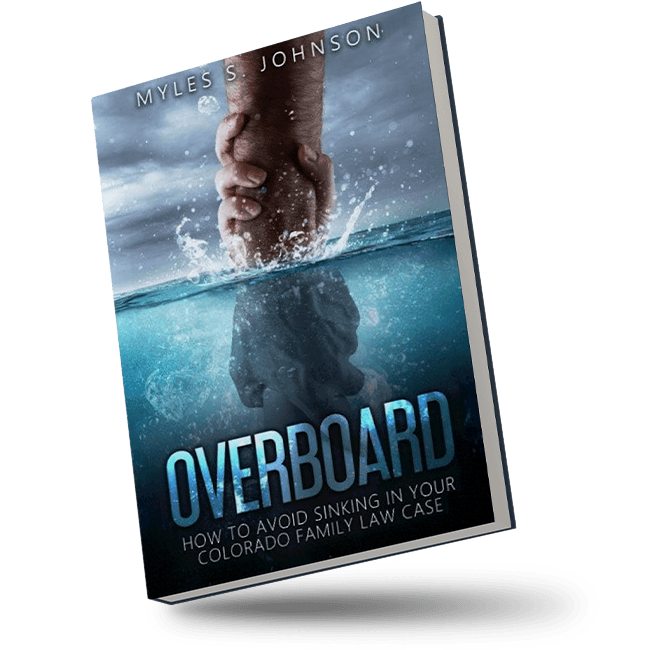N RTH
STAR Guiding You Through Life’s Most Important Legal Decisions

Moving Your Life Forward
Whole Hearted Commitment to Colorado Families
Our dedicated Colorado family lawyers possess powerful advocacy and mediation experience.
If your marriage is ending or you are experiencing another type of family law crisis, you need knowledgeable legal support that anticipates and meets your specific needs. At Johnson Law Group, LLC, in Denver, CO, we take the time to understand your concerns so that we can fully advocate for your rights.
When representing a client, no matter the issue, we clearly explain the law as it relates to the client’s case and will give them the opportunity to make well-informed decisions on how to proceed.
As mediators in a full-service family law firm, we provide a common-sense approach to helping individuals generate solutions to a wide array of conflicts. Regardless of the facts of your case, we will handle your matter with the professionalism and dignity that you deserve.

-
Individualized AttentionJust as each family is unique, so is each family legal matter. We always take the time to completely understand your situation so that we can tailor our advice and strategy accordingly.
-
Highly RecommendedOur clients often take the time to write and thank us, not only for the results we have earned for them but also for the respect we’ve shown them.
-
Supportive CounselWe never lose sight of the fact that divorce and other household conflicts can feel overwhelming. Our family lawyers will answer all of your questions to ease your burden in this difficult time.


meet our team
Our Reviews
-
This review nor a amount a amount of characters can express how grateful I am for Johnson law. From the moment I called they gave me a peace of mind that they where going to be able to help me through my child custody situation. I worked with Yasaman and she was super professional and caring. From the moment she started working on my case and laid down the road map to our approach to my case it happened to a tee. She never misled me or over promises anything but over delivered every step of the way! The last 6 months would of been hell if it wasn’t for Johnson Law and Yasaman.- Jaime S.
-
Very professional, and caring. Everything was handled well, they listened to all my concerns, and responded in a timely manner. I would highly recommend using Johnson Law Group, they are amazing!- Sonja
-
- Lisa H.
Shana Velazquez and Julie Hernandez helped me with my divorce and they were amazing. Shana was so good about explaining everything to me and calming my anxiety. Being 64 and going through a divorce was very daunting to me and I appreciate their help and kind words more than words can say. I highly recommend them!
-
My Attorney and Paralegal Kara Mietlicki are such a wonderful team. I’ve seen them in action and it’s amazing.They will go to battle for someone that they believe in. They will work endlessly to make sure that their client gets their paternal rights. I am thankful that they are by my side through the toughest struggle I have ever experienced in my life. I highly recommend their representation.- Shawndabney W.
-
I was in a very difficult custody/child support dispute with my ex-spouse. The Johnson law Group and in particular Elizabeth Gregory was phenomenal with their representation of my case. Working with her was such a wonderful experience, kept our goals at the top of every conversation, knew all points and avenues that we could take, never lead us in the wrong direction. I would recommend this firm to anyone who is going through a family law issue.- Liz
-
From the initial phone call I spoke to Myles Johnson, he gave great direction on how to proceed. Then acquiring the firm as my legal representation I worked with Said and he helped me step by step to get what I was looking for. I have already recommended two different individuals I know to Johnson Law Group and will be using them for all future situations. From the legal team to Cory at the front desk, everyone at the firm is top-notch.- Brady M.
-
I have a high profile case involving a custody matter, that stretched across multiple States, which included Colorado. At one point I had 4 Law firms attending to the matter in 4 different States, Johnson Law Group stood out as the best Law Firm, exemplifying integrity, fairness and strategies for the case. I highly recommend Johnson Law Group.- Jorel S.
-
Myles is very professional and well informed in his field. Cassidy their paralegal was also extremely helpful and client driven . 5 stars!- Stevie
-
They’re professional and supportive team work was beyond efficient and they got the job done in the least amount of time and with the least stress possible. They’re an amazing team to help with family needs and are always available to answer any questions or support. I would definitely recommend Myles and Genet Johnson for any family legal needs.”- M.A.
-
- Aaron
Myles is the best representation for anyone who has to go through an APR case. From day 1 he was very welcoming and attentive to me and what I was going through. I always felt very respected by him and the other members of his firm. Myles always took the time to really investigate any information or things involved with my case. I knew he was truly invested in my best wishes. When there were deadlines that needed to be met, they always were. If I was ever confused about a process, paperwork or court proceedings Myles took the time to explain and make sure I was comfortable and understood what was going on. All the way through Mediation. He was an absolute success and I could not have asked for better representation. I will always recommend Myles to anyone in need an attorney.
-
- Crystal H.
I came to the Johnson Law Group during a time of extreme stress. Andrea Dalton accepted my case and made me feel right at ease. She is compassionate, gives sound advice, and helped me obtain over $20,000 that my ex husband was illegally withholding from me. I appreciate her for giving me the confidence to stand up for myself. If I have any issues with my ex in the future, I will not hesitate to reach out to Andrea for help.
-
Andrea Dulton, Is pleasant, professional, extremely knowledgeable. I feel confident that she is going to win our Case. On a personal note, I like her, she makes me comfortable.- Kim E.
Jenny Little is a professional, patient, and knowledgeable individual. Regrettably, I haven’t had the chance to meet Jenny in person.
Experienced Colorado
Family Law Attorneys
Committed to Delivering Excellent Service
Our Colorado family law attorneys have assisted Coloradans as part of larger firms, judicial offices, and legal service organizations. We are proud to offer that big-firm experience in a welcoming small-firm setting where each client benefits from:
- Individualized attention — Just as each family is unique, so is each family legal matter. We always take the time to completely understand your situation so that we can tailor our advice and strategy accordingly.
- Highly recommended attorneys — Our clients often take the time to write and thank us, not only for the results we have earned for them but also for the respect we’ve shown them.
- Supportive counsel — We never lose sight of the fact that divorce and other household conflicts can feel overwhelming. Our family lawyers will answer all of your questions to ease your burden in this difficult time.
If you are unsure about your rights and what steps you should take, we can help you assess your options during a free consultation.


Comprehensive Advice
For legal issues when a marriage ends
Johnson Law Group, LLC, represents Denver-area clients in a complete range of domestic legal matters, including those relating to:
- Family law — For any family law issue that requires assistance from a qualified attorney, we will work diligently to pursue the best possible result.
- Divorce — No matter how complex, we can help you navigate the divorce process in a way that allows you to protect your legal rights and start a new chapter successfully.
- Child custody — We help parents of minor children establish effective child custody and visitation arrangements that enable young people and parents to preserve their relationships.
- Modification — Changes in financial status can mean that terms of divorce, custody or support orders are no longer appropriate. If this has occurred, we can petition the court for a fair modification.
Whether your family situation is amicable or highly contentious, our goal is always to reach a result that preserves your legal, financial and emotional well-being.


Divorce doesn’t have to be dramatic. For the litigants, losing your spouse is significant enough. But you can choose the way it affects your daily life. The only guarantee I can give is that the feeling that you have right now will not be the feeling you end with. This is a season in your life, and it must be approached that way.
















